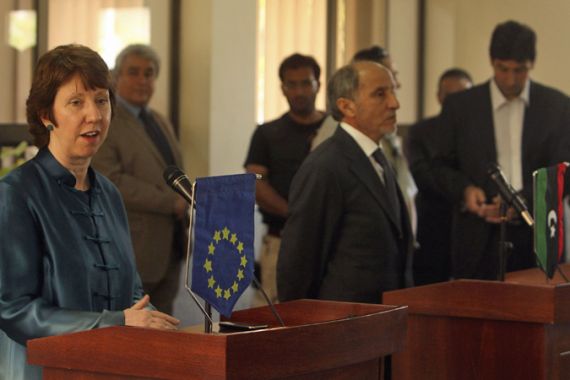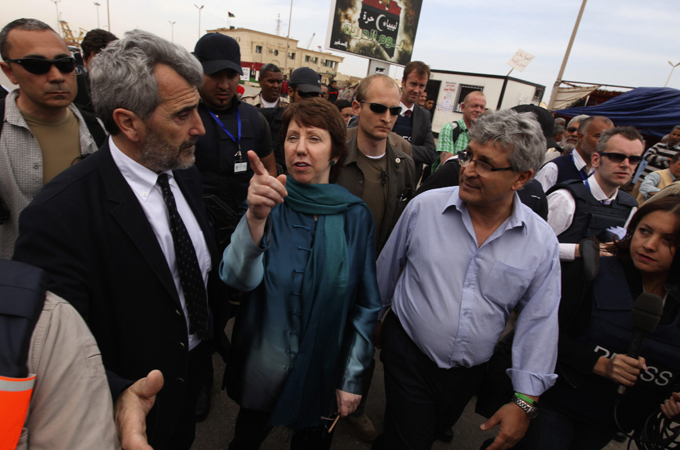European Union opens mission in Benghazi
EU foreign policy chief Catherine Ashton becomes highest-ranking diplomat to visit Libyan rebels’ stronghold.

 |
| Ashton toured the courthouse square where thousands of people in February called for Gaddafi’s ousting [Reuters] |
Catherine Ashton, the European Union foreign policy chief, has pledged support for Libya’s rebels during her first visit to the opposition stronghold of Benghazi.
Ashton became the highest-ranking foreign diplomat to visit the city since the revolt against longtime leader Muammar Gaddafi began in mid-February.
She toured the waterfront courthouse square where thousands of people in February called for Gaddafi’s ousting and came under fire from army and security forces.
The square has become the public heart of the protest movement in Benghazi and is covered in memorials for those who have died in the conflict.
Ashton opened an EU diplomatic mission in the city of around 700,000 people, which stood on the brink of street warfare two months ago, before international air strikes forced the retreat of troops loyal to Gaddafi.
Speaking to Al Jazeera in Benghazi on Sunday, Ashton said: “We are here to support them [the rebels] for the long term.
“What I was really interested to discuss with people, with them [the rebels] and with groups of people I’ve met, women’s groups, young people I’ve met, people from the media here, and so on, is the kind of things they’re looking for.
“Some of it is about capacity building, the ability to be able to build the institutions that don’t exist, having a political process that’s going to last by having [a] political parties system, whatever they decide.
“Also things like security and border management, really practical ways in which people can feel secure here.”
Jalil meeting
Ashton met with Mustafa Abdel Jalil, the chairman of the opposition National Transitional Council (NTC), who said her visit “showed the increased support of the European Union in supporting us to have a democratic and free state”.
The NTC recently made public the names of six more ministers, bringing the number of identified government officials to 20, a step toward making its operations more transparent, said Al Jazeera’s Mike Hanna, reporting from Benghazi.
The council has been keeping some members’ identities a secret to protect their families from attack.
During the meeting, Ashton said, the two discussed support for health, education, civil society, border management and security reform.
Jalil asked for EU help securing Libya’s southern borders with sub-Saharan countries that have been the source of a flow of migrant workers into the country, thousands of whom have fled because of the conflict, many of them across the Mediterranean Sea to Europe.
Before Ashton, the highest-ranking foreign diplomat to visit Benghazi was Radoslaw Sikorski, Polish foreign minister, who came on May 11.